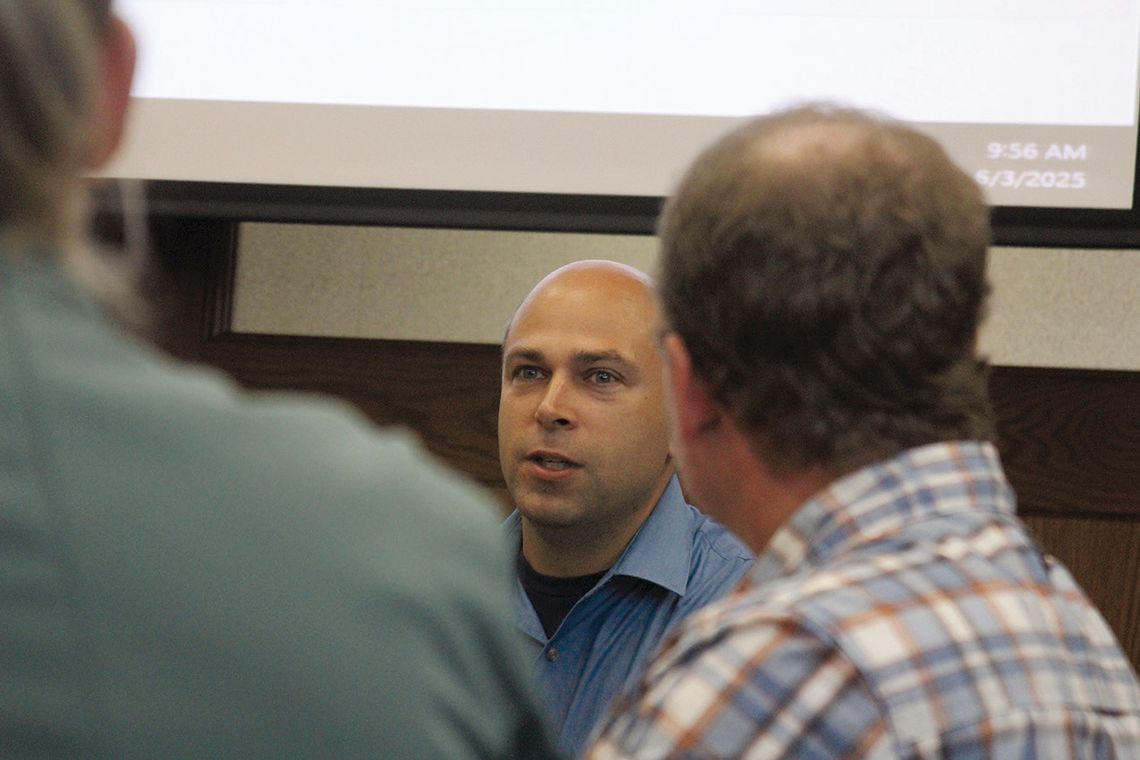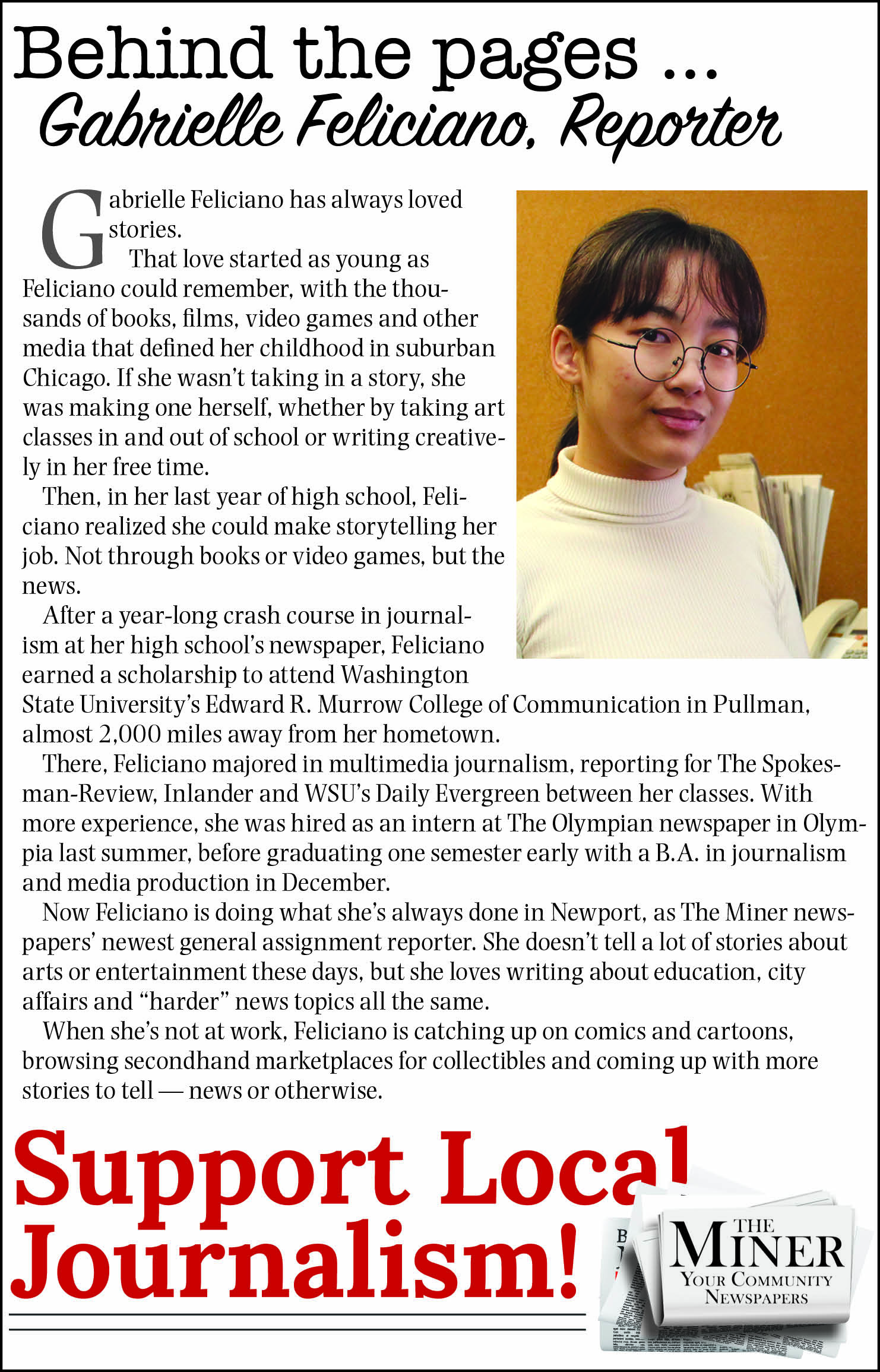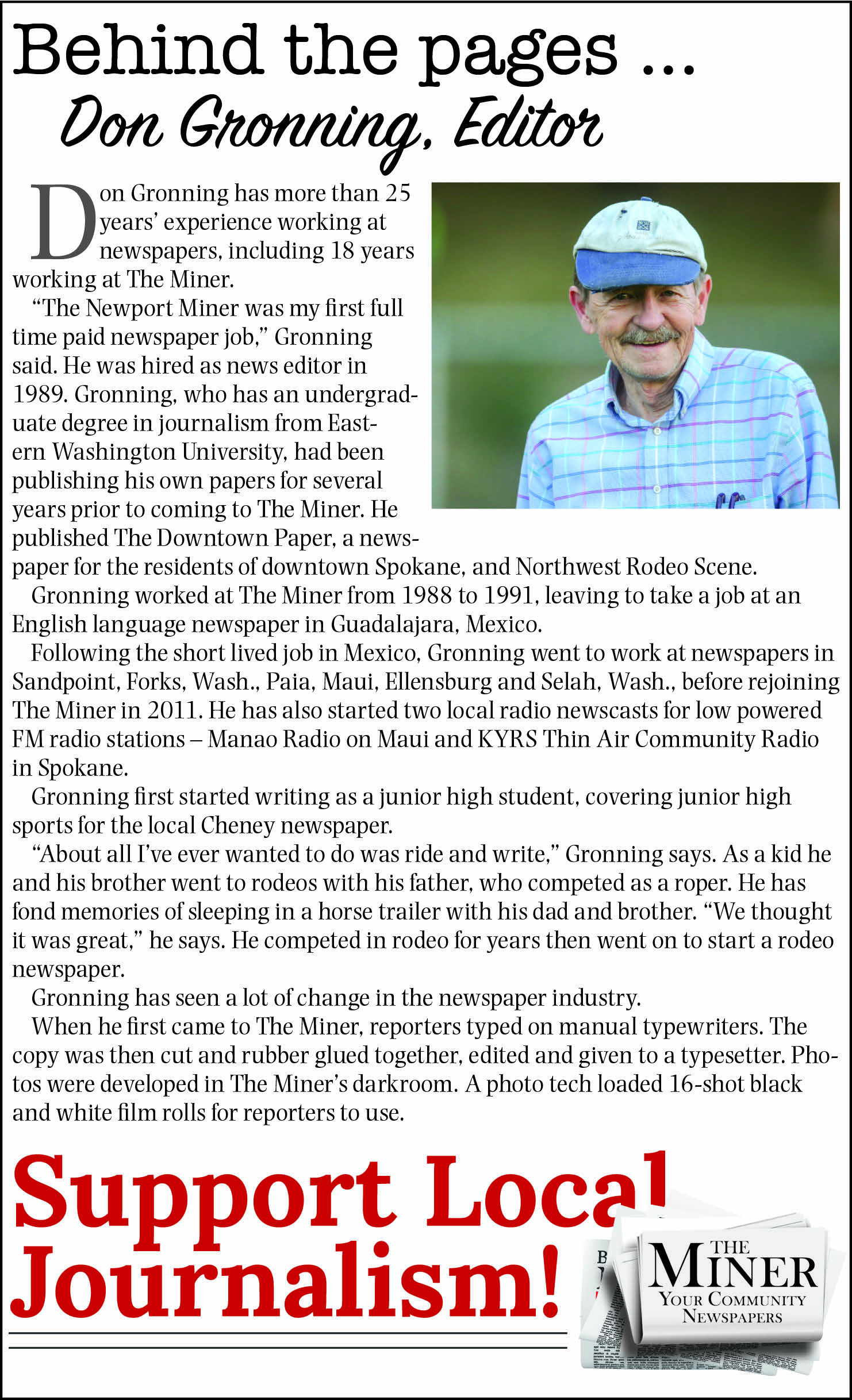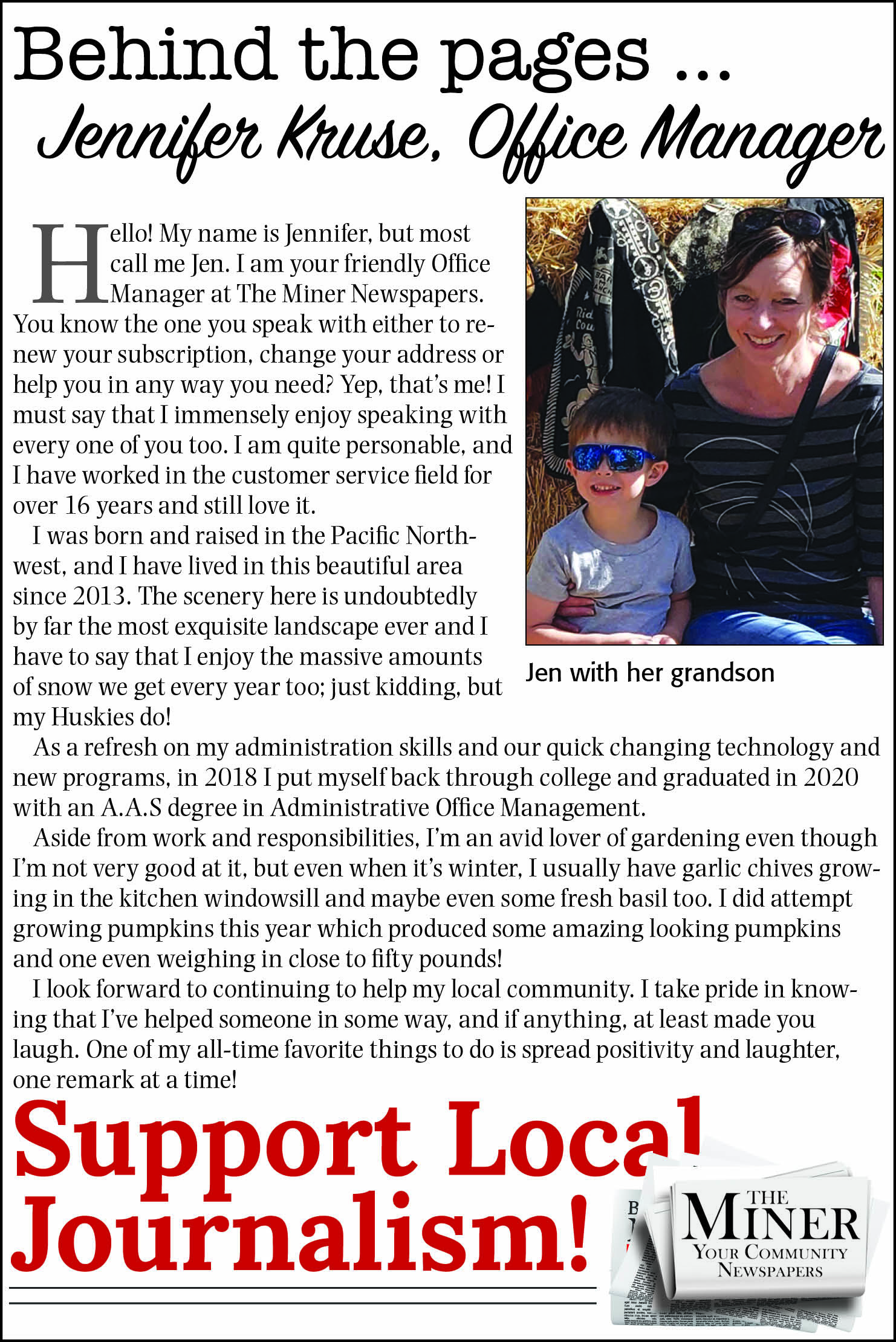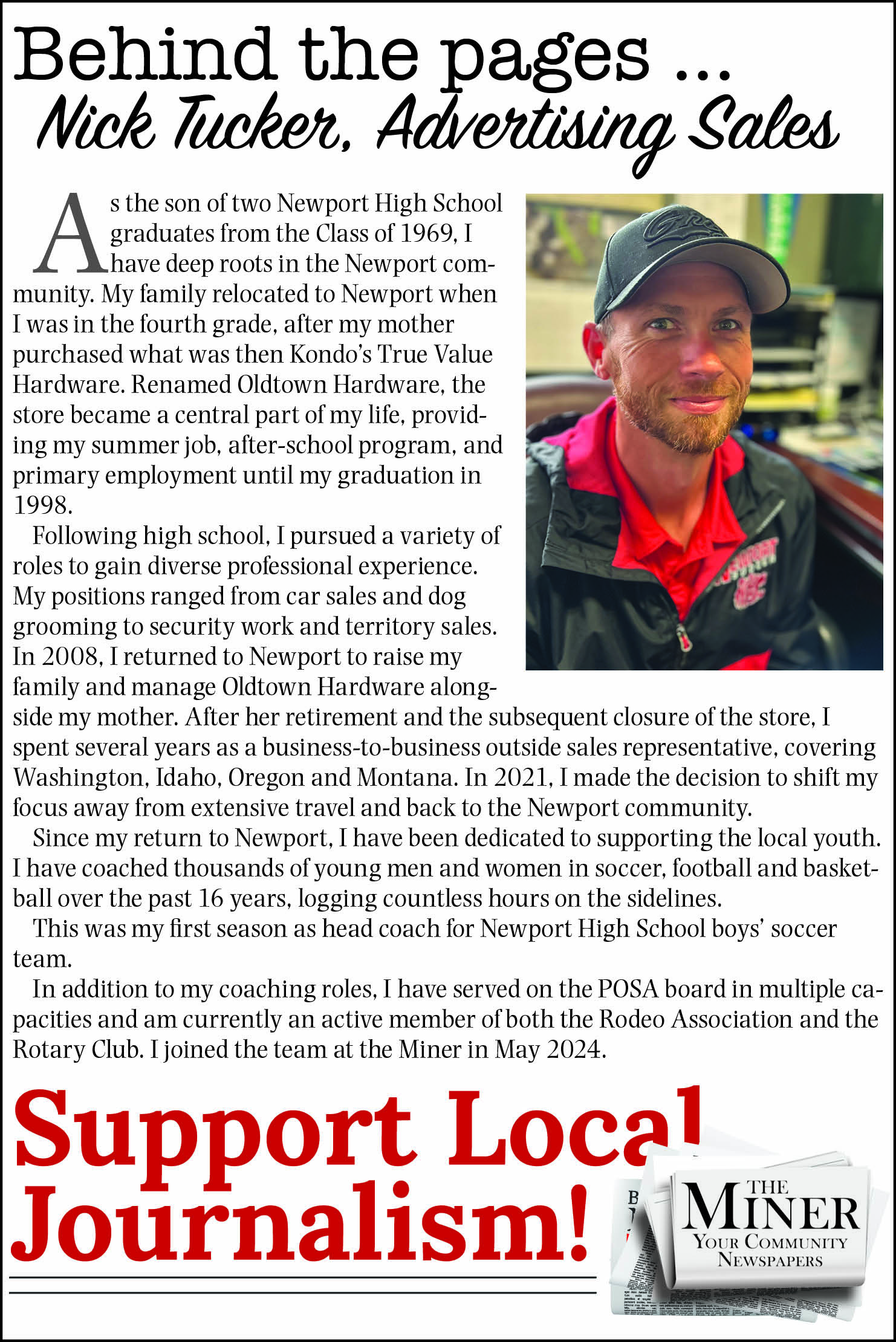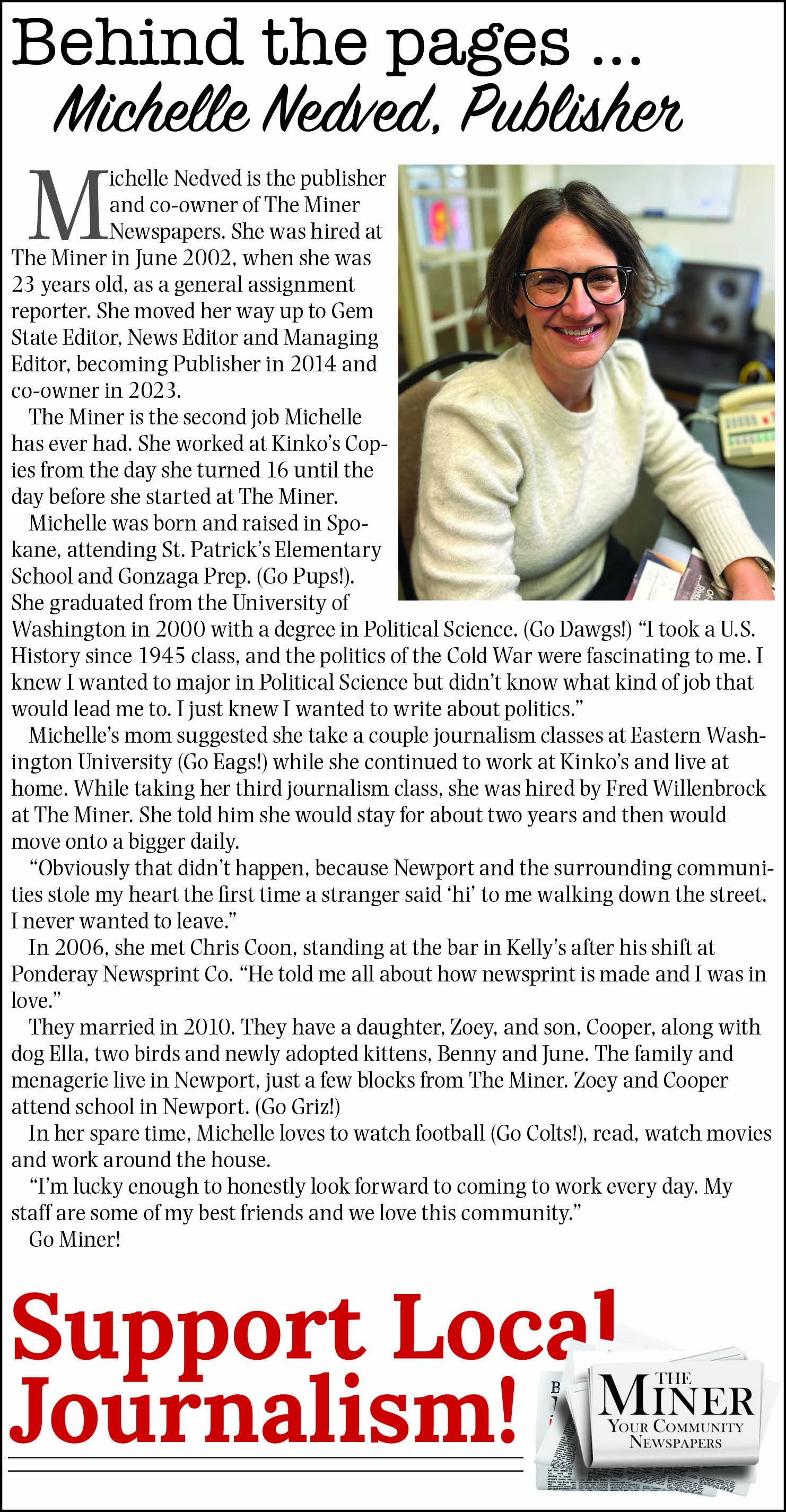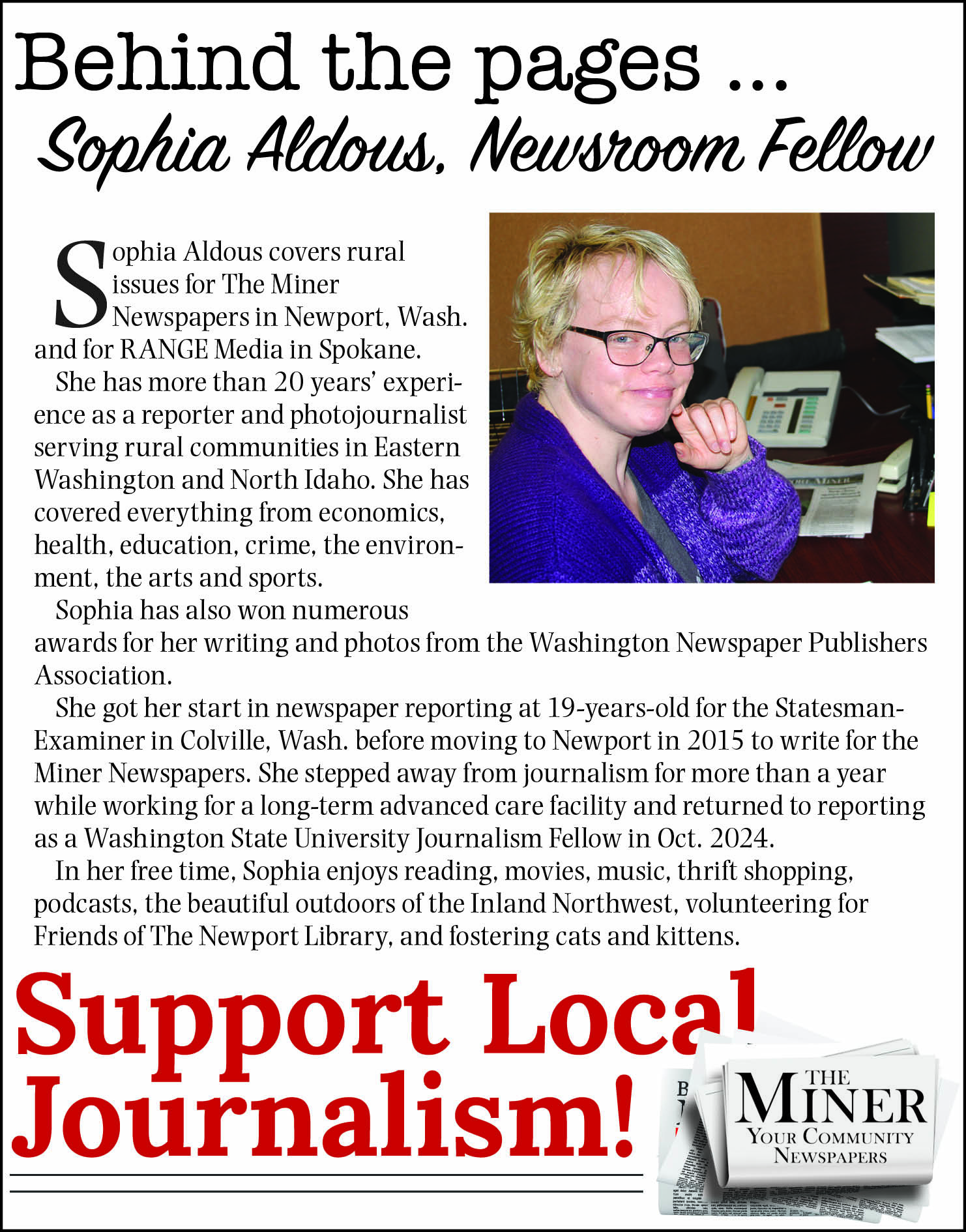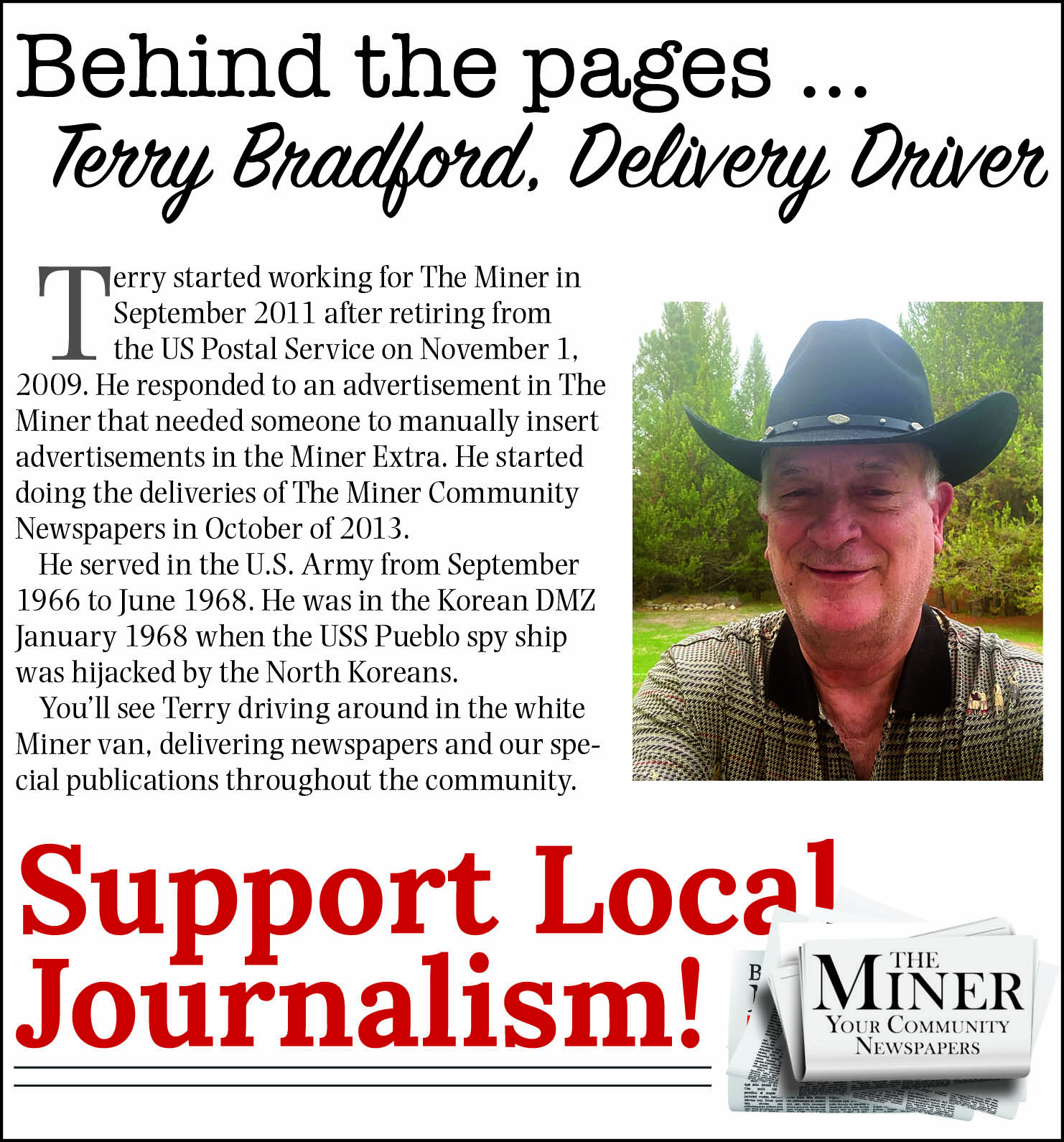NEWPORT – State Rep. Andrew Engell, R-Colville, said his first year in the state legislature is difficult to explain to outsiders.
“I’ll say it was a lot more like my homeowners’ association than I expected,” Engell said.
Engell appeared at the Pend Oreille Public Utility District’s commissioner
Tuesday morning meeting June 3 to take questions and talk about his first year as an elected legislator. Engell represents the 7th Legislative District, which includes Pend Oreille County.
He said there was a lot of well thought out legislation, as well as legislation that wasn’t.
“When you have almost 2,000 bills, it makes it hard to really follow everything,” he said. “Some of these bills get dropped halfway through session and they just get rammed through.”
Engell said the 7th District, which includes Pend Oreille County, is different than other parts of the state. For one thing, it’s the biggest district, with 20% of the state’s land mass and 2% of the people, he said.
“When you have 49 districts and one of them has 20 percent of the land, you realize that’s a recipe for not having very many representatives representing rural areas,” he said.
He said there were a lot of things that relate to the 7th District that weren’t being addressed. He had thought there might be legislation for liability reform for utilities. There was no legislation on that, he said, although it was needed.
“When you think about utilities and liabilities, some people see utilities as deep pockets that you go after when you have a fire,” Engell said. He said liability was needed for irresponsible things. But sometimes there was shared liability.
He gave the example of a person who doesn’t mow their lawn up to the house and a truck goes by setting off a spark and the grass catches fire and burns the house down. He says there is probably shared liability, as the homeowner needs to create defensible space around his home against fire.
Ultimately, in the case of a utility being blamed for a fire, it comes back on the ratepayers, which amounts to a tax, he said.
“I think we need to look at liability reform, something that’s a little more responsible than what we have now,” he said.
PUD commissioner Troy Moody asked if there is a plan to increase the state’s electricity availability.
Engell said there was some talk about that.
“There is a recognition from some people that we absolutely need to increase our energy capacity,” he said. “There’s some discussion about small scale nuclear, certainly to switching more to solar and wind, which we know is problematic if you get too much of that in your mix.”
He said there is no pushing electric cars and electrification of homes without the power capacity rising to match it, he said.
He said that 35% of cars sold were supposed to be electric by 2030.
California is the only state that has a waiver to exceed federal requirements for vehicles. Washington adopted legislation 20 years ago that allows them to follow California.
“Which means the California state legislature is effectively determining our lives here and we have no representation in the say,” Engell said. “So, it’s a fundamental breakdown in our government.”
Congress rescinded California’s waiver, he said, but President Trump hasn’t yet signed the bill, although Engell anticipates he will.
“Even with the natural growth of EVs, we’re going to have a hard time keeping up,” he said. He said the free market will get there, eventually.
He said the EV mandate was an example of lawmakers not fully understanding all the unintended consequences of legislation.
He said he want to understand the unintended consequences of legislation to rural areas, even when it is legislation he opposes. If he understands all the consequences, he can try to get amendments to bills to protect against the things that are bad for rural districts.
He said the Democratic Party controls the legislature and who can and can’t vote against Democratic legislation.
“I didn’t realize how controlled that was,” he said. He said some of his Democratic colleagues were frustrated by how controlled their party was.
“I know one of the other freshman Democrats I saw in the cafeteria on one of the last days of the session and he looked kind of beat down and I asked him how it was going,” Engell said. “He says, well it’s nice being in the majority because you get more bills passed. But it sure sucks being forced to vote for things you don’t agree with.
“And then he told me there was some policy about four Democrats being allowed to vote no on most bills. He says I don’t usually get picked to be one of them.”
Those go to swing district Democrats, Engell said, so the Democrats can keep the district.
Engell said he has some things he wants to work on in the next session, including hazard tree exemption from the for the Forest Practices Act for small landowners. Trees within 150 feet from a home can be harvested without a permit. He would like to extend that to 150 feet from property lines or utility lines or buildings on the property.
Engell said that citizen involvement is important, especially at the state level. When it comes to advancing or opposing legislation, stories matter more than facts to lawmakers.
“If you can come up with a story about how someone will be impacted negatively if their bill passes, then oftentimes they’ll drop their bill,” he said. “Honestly, they probably don’t care about how the PUD does.”
But if sponsors of legislation the PUD doesn’t like hear a story about how low -income people are going to have a harder time paying their power bill, they might care about that. “We have to tell that story,” Engell said.
.png)

